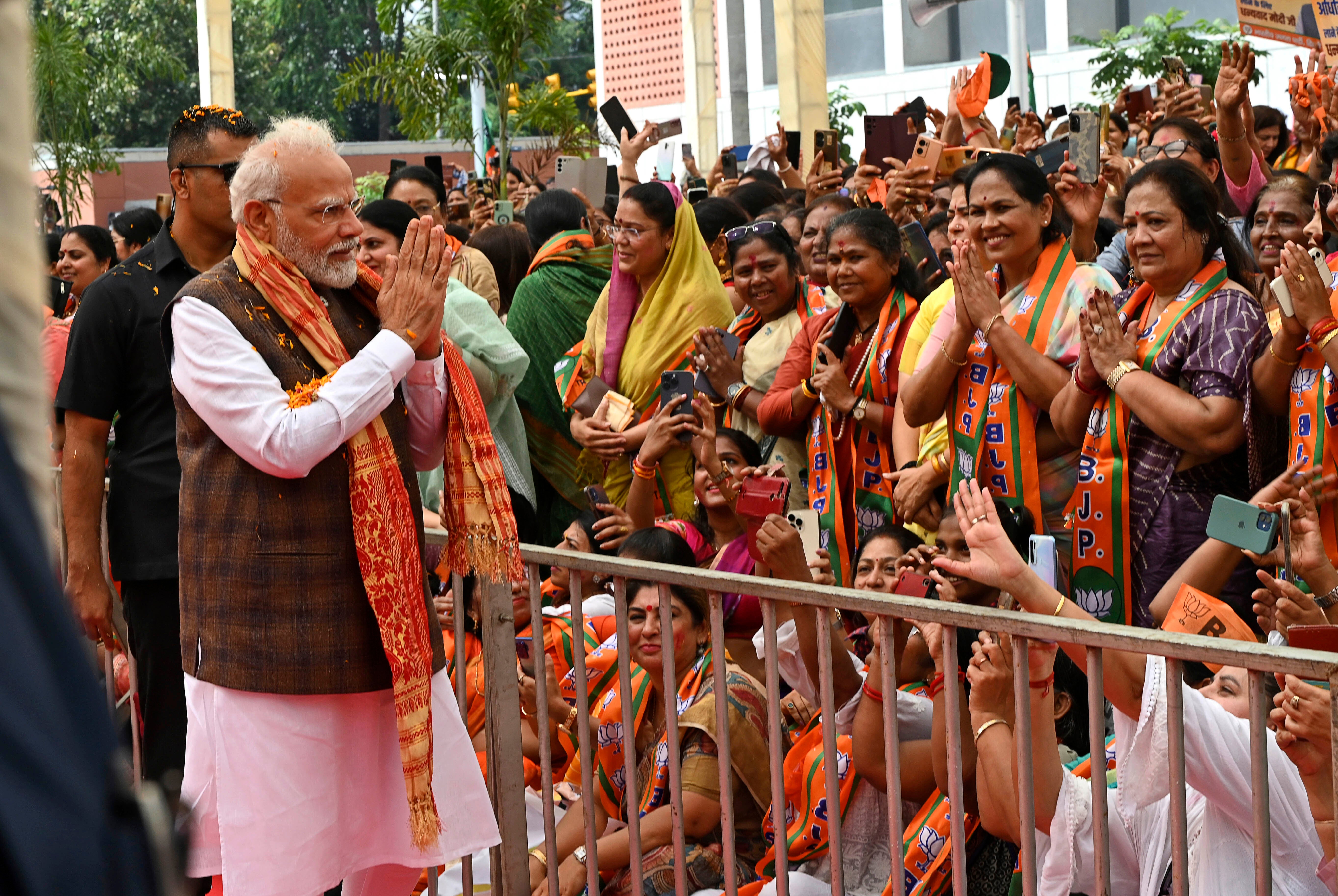How India’s new reservation bill will impact women
Indian parliament clears ‘historic’ bill but women will have to wait till 2029 for elusive House seat

Your support helps us to tell the story
From reproductive rights to climate change to Big Tech, The Independent is on the ground when the story is developing. Whether it's investigating the financials of Elon Musk's pro-Trump PAC or producing our latest documentary, 'The A Word', which shines a light on the American women fighting for reproductive rights, we know how important it is to parse out the facts from the messaging.
At such a critical moment in US history, we need reporters on the ground. Your donation allows us to keep sending journalists to speak to both sides of the story.
The Independent is trusted by Americans across the entire political spectrum. And unlike many other quality news outlets, we choose not to lock Americans out of our reporting and analysis with paywalls. We believe quality journalism should be available to everyone, paid for by those who can afford it.
Your support makes all the difference.Indian lawmakers approved a landmark bill on Thursday to ensure one-third reservation for women in lower house of the parliament and in state legislatures, in a step forward to attain gender parity among lawmakers.
But the legislation won’t be implemented before India completes the next population census and the delimitation process – a mammoth task to redraw the boundaries of constituencies. The bill is likely to be enacted in the 2029 national elections.
"This is a historic moment, this is a moment of pride for us," prime minister Narendra Modi said as he tabled the bill – known in Hindi as “Nari Shakti Vandan Adhiniyam” – in the lower house of parliament.
The legislation has been in the works for over a quarter of a century but eventually cleared lower house (Lok Sabha) on Wednesday with a 454-2 vote.
It was opposed by the two MPs from the opposition All India Majlis-e-Ittehadul Muslimeen party due to a lack of reservation within the bill for Muslim women.
The upper house (Rajya Sabha) after 11 hours of debate unanimously voted to pass the bill on Thursday.
The legislation secures 33 per cent of seats for women in the lower house of parliament, state legislatures and the Delhi assembly. The reservation of seats for women would continue for 15 years and could be extended by parliament.
The reservation will not be applicable for the upper house where members are chosen by state legislatures. The bill now requires approval from at least half of India’s 28 state legislatures before it becomes law.
All opposition parties that supported the bill said the delay in its implementation was an injustice to women.
"Any delay in implementing the women's reservation bill will be a gross injustice to Indian women," said Sonia Gandhi, former chief of the opposition Indian National Congress.
"Indian women have been waiting for their political responsibility for the past 13 years. And now they are being asked asked to wait for some more years," she added.
Critics have accused Mr Modi of bringing the bill to parliament just months before the upcoming 2024 general elections to amass female votes.
India's vice president Jagdeep Dhankhar said the approval of the long-pending bill was a "historic achievement".
First introduced in 1996, the bill was tabled for the seventh time at a special session of the parliament held this week. It previously failed due to strong disapproval from the country’s male lawmakers and calls for a special quota for women from backward classes amid fears of the educated elite from urban areas taking up all the space.
"I am happy that the women's reservation bill was introduced, but I am feeling somewhat dejected because it has come without reservation for OBC [Other Backward Classes] women," said Uma Bharti, a former minister from Mr Modi's Bharatiya Janata Party (BJP).
Women in the world's largest democracy make up for over 48 per cent of the country's 1.4 billion people but have 15.1 per cent representation in parliament, compared to the international average of 24 per cent.
Just 104 of India’s 788 MPs were women after the last national election, government figures show.
In India’s state legislatures, women hold about 10 per cent of the seats.



Join our commenting forum
Join thought-provoking conversations, follow other Independent readers and see their replies
Comments